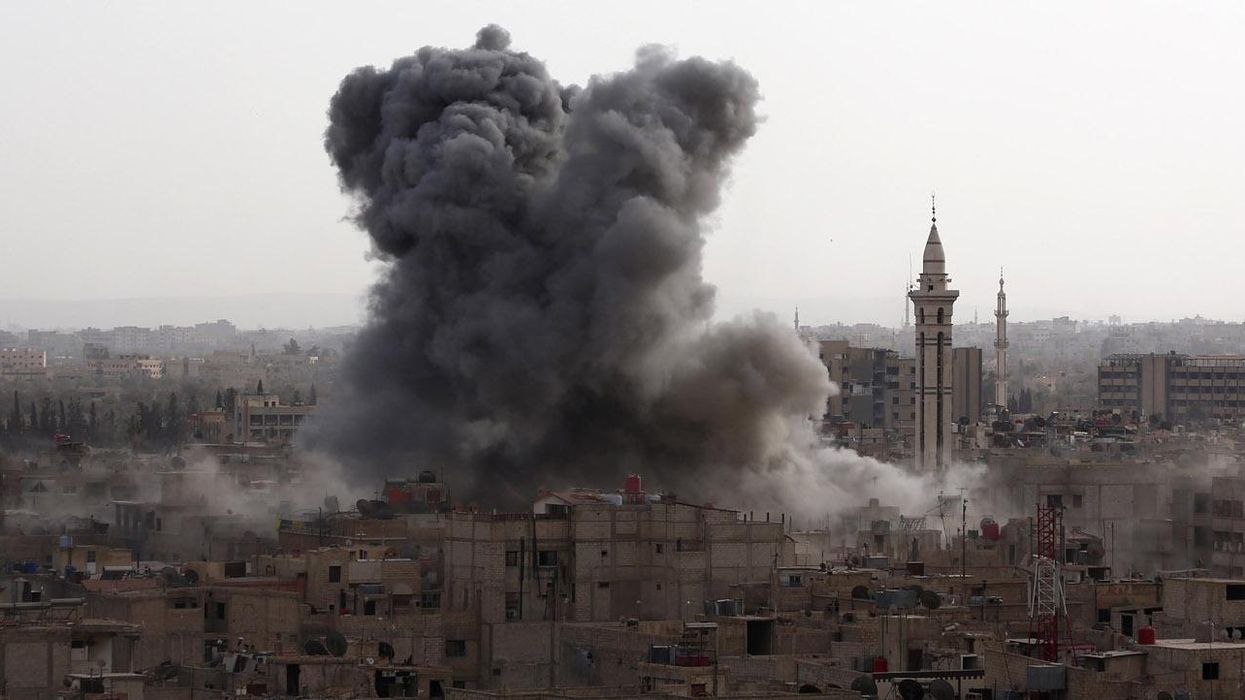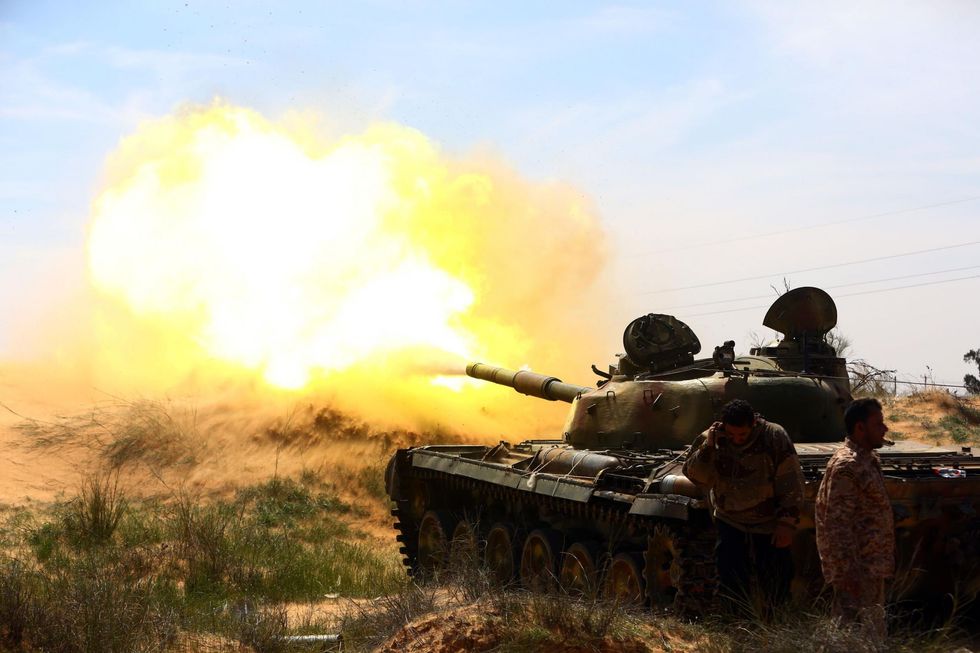News
Louis Dor
Dec 18, 2015

Smoke billows from the Syrian rebel-held area of Douma, east of the capital Damascus on 16 September 2015
The likelihood of conflict in different countries around the world next year has been evaluated in an annual study.
The Center for Preventive Action, a policy unit for the Council of Foreign Relations, evaluates the likelihood that conflicts will emerge to help US policymakers in prioritising prevention and crisis migration demands.
The Preventive Priorities Survey found that:
concerns over the implications of growing instability and conflict in the Middle East dominate[d] the results of the 2016 survey.
Half the mid-range priorities involved Middle Eastern countries while a further intensification of the Syrian civil war topped the list in terms of priority to the the United States.
The survey concluded that, in order of priority, these are the conflicts which the US most needs to keep an eye on in 2016:
High likelihood:
Syria
Reason: Intensification of the civil war in Syria resulting from increased external support for warring parties, including military intervention by outside powers.
Libya
Fighters from the Fajr Libya take cover during clashes with an opposing militia in Bir al-Ghanam, around 50 kilometres from the capital on 19 March 2015 (Picture: MAHMUD TURKIA/AFP/Getty Images)
Reason: Continued political fracturing, with heightened violence and further military intervention by Arab states.
Israel and Palestinian territories
Reason: Heightened tensions, leading to attacks against civilians, widespread protests, and armed confrontations.
Turkey
Reason: Intensified political violence involving various Kurdish groups and Turkish security forces, exacerbated by spillover from the Syrian civil war.
Egypt
Reason: Increased political instability, including terrorist attacks, particularly in the Sinai Peninsula.
Afghanistan
Reason: Increased violence and instability, resulting from the strengthening of the Taliban insurgency.
Iraq
Reason: Continued fracturing due to territorial gains by Isis and ongoing Sunni-Shia sectarian violence.
Moderate likelihood:
North Korea
(Picture: Ed Jones/AFP/Getty Images)
Reason: A severe crisis with or in North Korea caused by nuclear or ballistic missile weapons testing, a military provocation, or internal political instability.
The EU
Reason: Political instability in EU countries stemming from the influx of refugees and migrants, with heightened civil unrest, isolated terrorist attacks, or violence against refugees and migrants.
Mexico
Reason: Escalation of organised crime–related violence, with spillover effects into the United States.
Pakistan
Reason: Increased internal violence and political instability caused by multiple militant groups, primarily the Pakistani Taliban.
Lebanon
Reason: Increased sectarian violence and political instability due to spillover from the Syrian civil war.
Ukraine
Reason: Intensification of fighting between Russian-backed militias and Ukrainian security forces, with potential overt Russian military intervention.
Jordan
Reason: Growing political instability and civil violence in Jordan, triggered by spillover from the Syrian civil war.
Yemen
Reason: Intensified civil war as a result of fighting among national loyalist forces, Houthi rebels, and intervening outside forces.
Nigeria
A man walks past a the scene of a bombing after at least 20 people were killed on 22 June 2015 in Maiduguri, northeast Nigeria. (Picture: STRINGER/AFP/Getty Images)
Reason: Intensified sectarian violence and political instability related to Boko Haram, with potential spillover into nearby countries.
Russia
Reason: Escalation of Islamist militancy and violence, including civil unrest in the North Caucasus region.
South Sudan
Reason: Protracted civil war stemming from political and ethnic divisions.
Central African Republic
Reason: Escalation of sectarian violence between the ex-Seleka rebels and anti-balaka militias.
Burma
Reason: An intensification of sectarian violence between Buddhists and Muslim Rohingyas, potentially exacerbated by post-election political instability.
Venezuela
Reason: Deepening economic crisis and political instability, leading to heightened civil unrest.
Democratic Republic of Congo
Reason: Growing political instability ahead of scheduled elections, resulting in widespread violence and destabilising effects on neighbouring countries.
More: Syria: Who is fighting who?
More: These 14 moving photos of wounded soldiers were all taken by Bryan Adams
Top 100
The Conversation (0)














